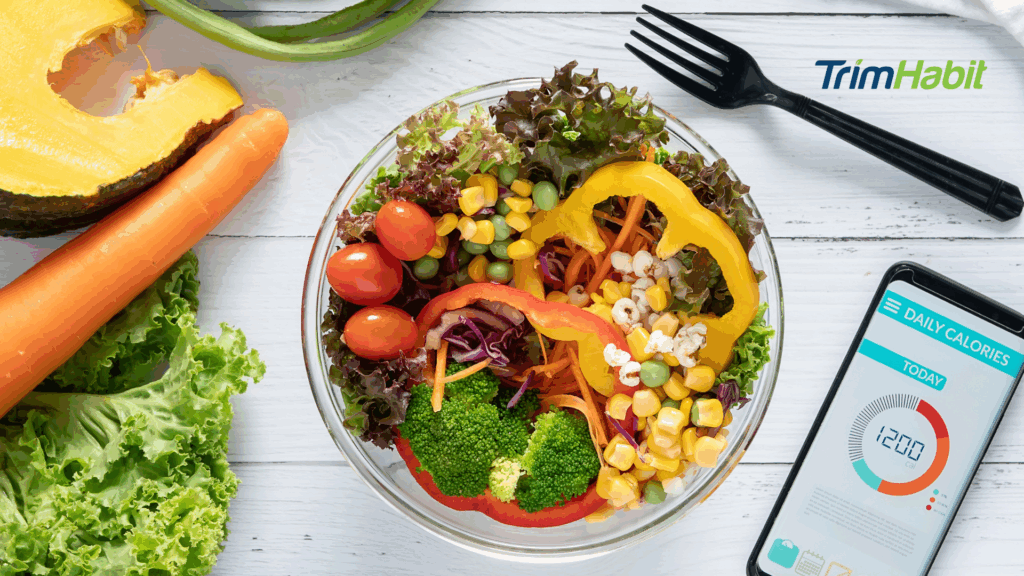The choices you make about your nutrition and lifestyle have a significant impact on your efforts to lose weight. While it’s usually best to avoid alcohol altogether, tequila and whiskey could actually assist with weight loss.
As appealing as this might sound for those who enjoy a drink or two, it’s essential to take a closer look at the scientific realities before embracing alcohol as a weight loss solution.
This article takes a closer look at tequila vs whiskey for weight loss, examining the complex interplay between alcohol consumption and shedding pounds while highlighting the unique qualities of these two beverages in the context of weight management.
Metabolic Effects Of Alcoholic Beverages
Alcohol, including spirits like tequila and whiskey, contains calories that contribute to your daily intake.
According to a study, alcohol can affect the body’s metabolism by increasing fat storage, especially around the abdominal area. This is often called “beer belly” or “wine waist.” Alcohol consumption might influence appetite regulation and lead to poor food choices or overeating. You might be more likely to consume high-calorie and unhealthy foods while drinking alcohol, which could hinder your weight loss1,2.
What Is Tequila?
Tequila, derived from the agave plant, is often celebrated for its smoother taste profile. The natural sugar found in tequila, known as agavins, is non-digestible, akin to dietary fiber, and does not lead to spikes in blood sugar levels.
It is widely believed that tequilas made entirely of agave are the purest. The barrels used to age other tequila (respodar or blended) contain extra sugars that are later utilized to age that tequila. Tequila is a safe alternative to other types of alcohol for those who avoid grains.
Caloric Content Of Tequila
Tequila is often considered a more favorable option in terms of calorie content. A standard shot of tequila has 64 calories3. Here are some examples of the calorie counts in various tequila shots:
- Reposado Tequila Shot: Approximately 104 calories
- Blanco Tequila Shot: Approximately 96 calories
- Añejo Tequila Shot: Approximately 112 calories
It is important to note that mixers and additional ingredients can affect your tequila-based drink’s calorie content. Adding club soda or lime juice to your alcoholic beverages will add more calories.
To balance enjoying tequila and maintaining your weight loss goals, always adhere to the recommended serving size to help manage calorie intake.
Health Myths About Tequila
There is no evidence from human studies that drinking tequila has any health benefits. However, there are several articles advertising the outcomes of preliminary animal experiments. And almost all of this early research evaluated the possible advantages of agave chemical compounds.
According to an article published in 20164, the potentially advantageous chemicals in agave sugars degrade during processing and transform into ethanol, the primary component of alcoholic beverages.
Some of the most well-liked but unproven theories out there assert that tequila consumption can:
- enhance sleep
- aid with weight loss
- prevent and assist in the treatment of infections such as the flu and other colds
- minimize discomfort
- enhance the use of some medicines and their absorption
- decrease the chance of dementia
- increase lifespan and possibly slow down or reverse aging
What Is Whiskey?
Whiskey, a renowned distilled spirit, boasts a rich historical lineage that dates back centuries. Its origins can be traced to medieval monasteries in Ireland and Scotland, where monks first experimented with distillation techniques. Over time, the production and consumption of whiskey spread throughout Europe and eventually the rest of the world.
The distillation process plays a crucial role in shaping whiskey’s unique characteristics. Crafting whiskey encompasses several key steps, beginning with mashing. To create a mash, the process involves fermenting grains (such as barley, corn, rye, or wheat).
This mash is then distilled to separate alcohol from impurities, resulting in a higher alcohol content liquid. The distilled spirit is aged in wooden barrels, typically oak, allowing it to develop its flavors, aromas, and color over time.
Caloric Content Of Whiskey
Whiskey’s nutritional composition is relatively simple due to its distillation process, which removes many of the original ingredients’ elements. Unlike other alcoholic beverages, whiskey contains negligible amounts of carbohydrates, fats, and proteins, primarily broken down during fermentation and distillation.
Consequently, the caloric content of whiskey is primarily attributed to its alcohol content. On average, a standard 1.5-ounce (44 ml) serving of whiskey contains approximately 97 calories5. This caloric content can vary slightly based on the specific type of whiskey and its alcohol by volume (ABV) percentage.
Potential Health Benefits Of Whiskey Consumption
It’s crucial to note that excessive consumption can adversely affect health. Moderation and responsible drinking remain vital factors in deriving any potential advantages from whiskey while minimizing risks.
Antioxidant Properties of Certain Types of Whiskey
Some types of whiskey, mainly those aged for more extended periods in oak barrels, have been found to contain antioxidants. These antioxidants play a crucial role in combating oxidative stress in the body, which can contribute to cell damage and various health issues.
The research found that certain types of whiskey exhibited notable antioxidant properties, contributing to their potential health benefits. It’s important to note that the antioxidants in whiskey are derived from the grains used in its production and the aging process6.
Cardiovascular Benefits
Moderate whiskey consumption has been associated with potential cardiovascular benefits.
A study revealed that individuals who consumed whiskey moderately exhibited a lower risk of specific cardiovascular issues than heavy drinkers or those who abstained entirely. It’s worth emphasizing that moderation is crucial; excessive drinking can adversely affect cardiovascular health7.
Stress Reduction and Relaxation
Whiskey’s effects on the central nervous system have been linked to stress reduction and relaxation.
According to research, moderate consumption of whiskey can trigger the release of neurotransmitters that promote relaxation8.
Tequila vs Whiskey For Weight Loss
Both tequila and whiskey are distilled spirits, which means they are relatively low in carbohydrates, fats, and proteins. However, there can be slight variations in caloric content between the two. The differences are minimal, but they can add up if consumed excessively.
According to a study that included postmenopausal women, those who consumed alcohol moderately were less likely to experience significant weight gain compared to women who either abstained from alcohol or consumed alcohol heavily9.
Whiskey vs Tequila: Which Is Healthier?
There is no clear-cut response to this query because it depends on various elements, such as the type of tequila and whiskey consumed, how they are produced, and the person’s personal preferences and health objectives.
Tequila is a fantastic source of antioxidants and generally has fewer calories and sugar than whiskey. For people who want to limit their calorie consumption or control their blood sugar levels, tequila might be a better option.
Tequila is a smart choice if you wish to enhance your digestive system. The high inulin content of the beverage stimulates the production of good bacteria in your digestive tract, which can help with digestion.
Best Low-Calorie Tequila And Whiskey Cocktails
- Long Island Iced Tea
- Margarita
- Tequila Martini
- Tommy’s Margarita
- Three Wisemen Shot
- Skinny Whiskey Sour
- Irish Mule
- Jack Daniel’s Honey Cranberry Tea
3 Best Strategies For Mindful Drinking To Support Weight Loss
Being mindful about your drinking choices can be a big win for your weight loss journey. Take a look at these smart moves to enjoy tequila and whiskey while staying on track with your goals. Just remember, being responsible and mindful about your sips not only helps your health but also makes the whole experience more enjoyable.
- Choosing Quality Over Quantity
Opt for high-quality tequila and whiskey, and savor the flavors in smaller amounts. Choose varieties that you genuinely enjoy and appreciate. Focusing on the quality of your drink rather than the quantity can enhance your overall experience and help you stay within your caloric limits.
- Alternating with Non-Alcoholic Beverages
To avoid excessive calorie intake and to stay hydrated, consider alternating between alcoholic and non-alcoholic beverages. Drinking a glass of water or a calorie-free beverage between each alcoholic drink can help you pace yourself, stay hydrated, and reduce overall calorie consumption.
- Being Mindful of Mixers and Cocktail Additives
Numerous cocktails and mixed beverages often pack a punch in terms of added sugars and calories, primarily due to mixers and additives. To keep an eye on your weight, it’s wise to select low-calorie mixers such as soda water, diet tonic, diet soda, or fresh citrus juices. Additionally, exercise caution when it comes to added sugar components like syrups and sweeteners, as they have the potential to rapidly elevate the calorie content of your beverage.
For an enhanced flavor experience that doesn’t tip the calorie scale, consider infusing your cocktails with fresh ingredients and natural flavors. Incorporating fresh citrus juices, along with herbs like mint and basil, or muddled fruits can introduce complexity and depth to your drink without contributing excessive calories.
Final Thoughts
Tequila and whiskey can certainly be enjoyed in moderation as part of a balanced lifestyle. Making mindful choices about lower-calorie drinks can help you keep your calorie count in check. However, it’s essential to remember that the overall amount of alcohol you consume and how it fits into your overall diet and activity level are the key factors in how it may affect your weight.
Responsible and informed consumption should always be the guiding principle when incorporating alcoholic beverages into a healthy lifestyle. Practicing moderation is crucial to prevent excessive calorie intake that might contribute to weight gain.
Just like any dietary decision, it’s a wise idea to consult with healthcare professionals or registered dietitians before making significant changes to your drinking habits. They can offer personalized advice based on your specific health needs, weight loss goals, and any potential interactions with medications or health conditions.









